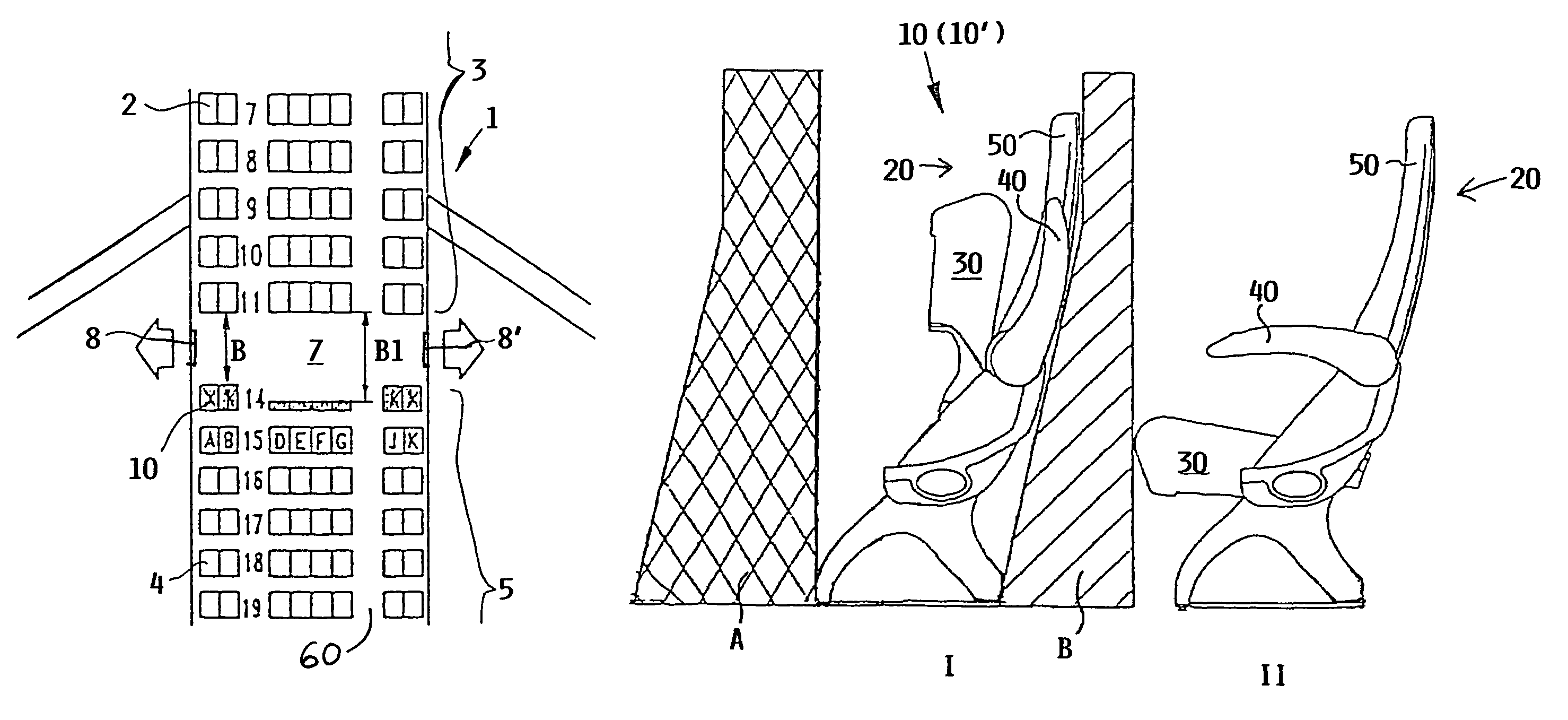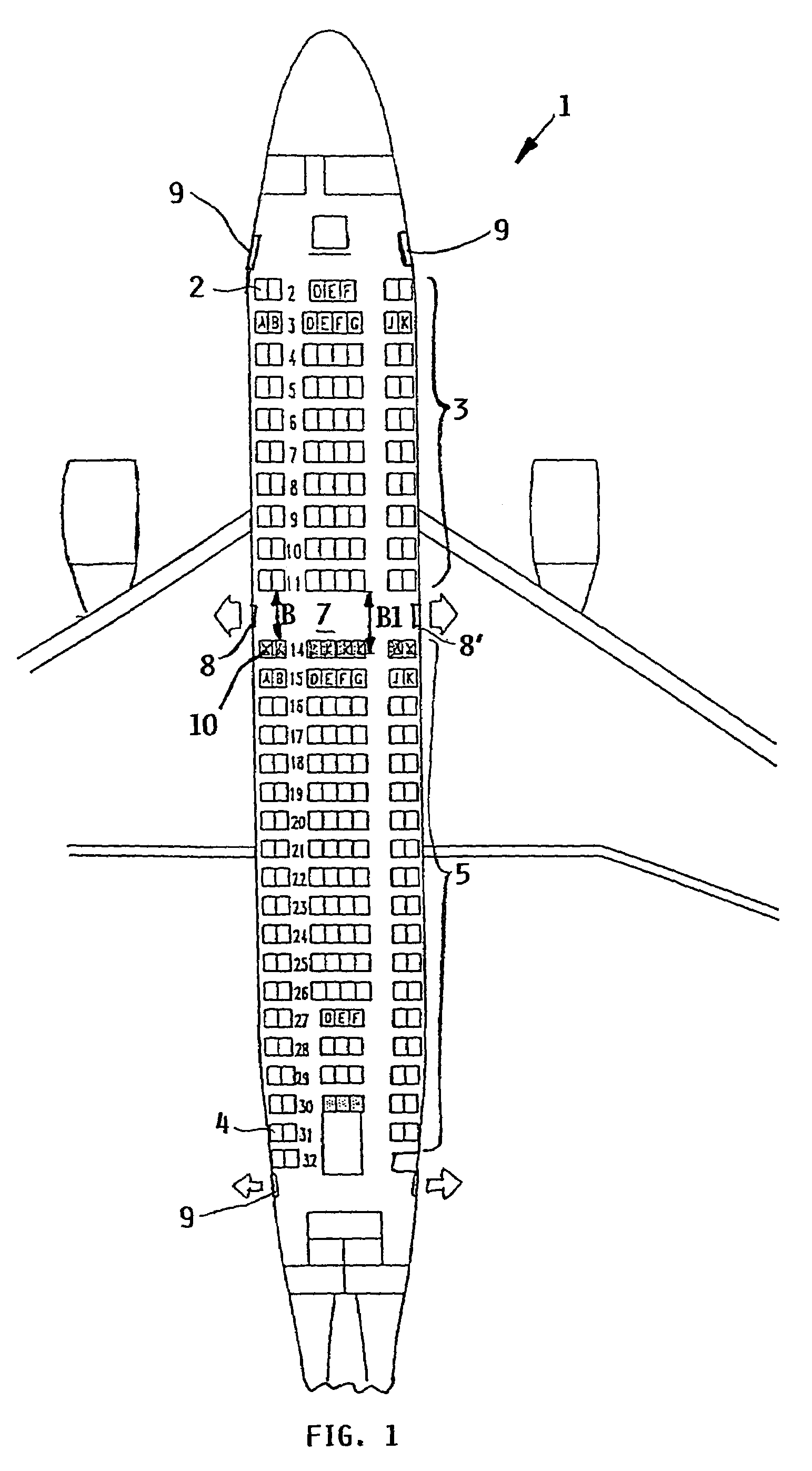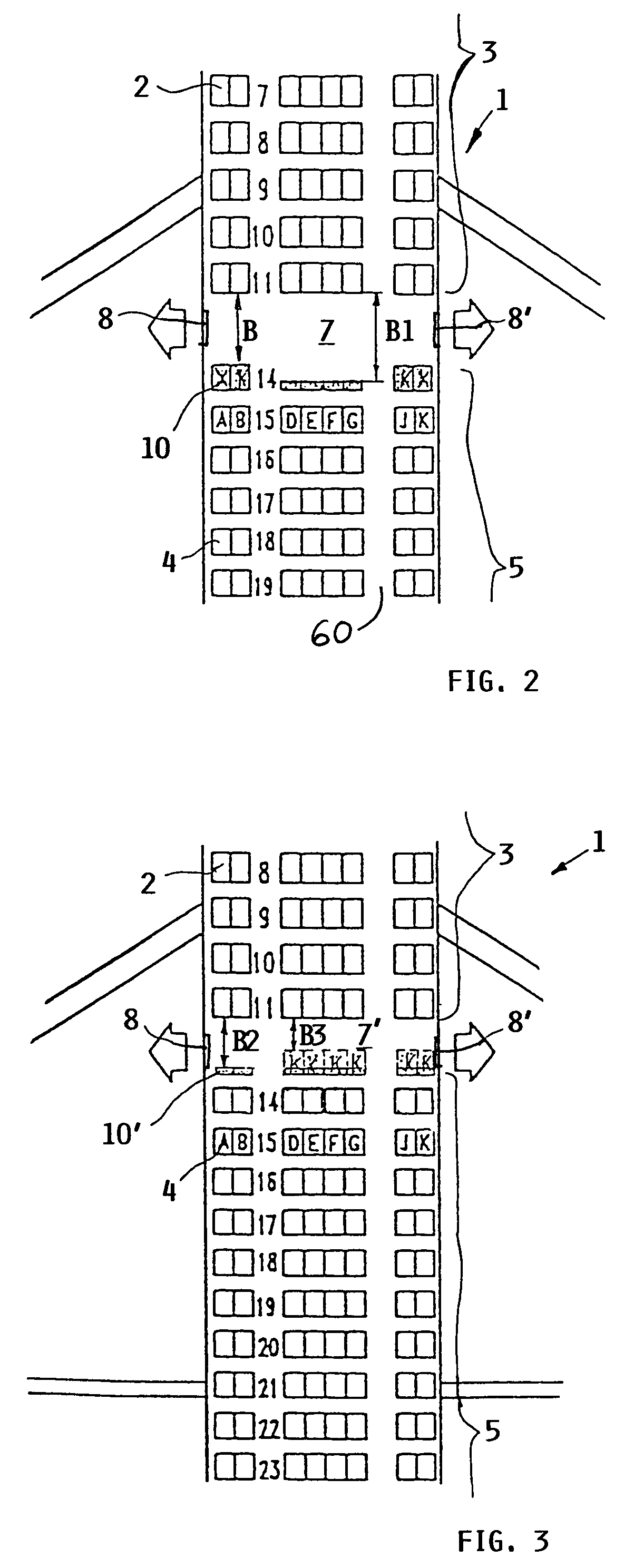Seating arrangement especially adjoining an emergency exit in an aircraft passenger cabin
a seat arrangement and passenger cabin technology, applied in the direction of seat arrangement, movable seats, emergency equipment, etc., can solve the problems of difficult access to the exit and difficulty for passengers, and achieve the effect of increasing the increasing the available width of the transverse aisle, and facilitating the evacuation of the aircra
- Summary
- Abstract
- Description
- Claims
- Application Information
AI Technical Summary
Benefits of technology
Problems solved by technology
Method used
Image
Examples
Embodiment Construction
[0015]FIG. 1 schematically shows a cabin layout of a passenger transport aircraft. The passenger cabin 1 includes a business class 3 equipped with business class seat rows 2 in the forward portion of the aircraft, as well as a tourist or economy class 5 equipped with tourist or economy class seat rows 4 in the aft portion of the aircraft. As can be seen, the seat spacing or pitch in the aircraft longitudinal direction is larger for the business class seat rows 2 than the tourist class seat rows 4.
[0016]Furthermore, a transverse aisle 7 is formed between successive seat rows, in this example particularly between the business class seat rows 2 and the tourist class seat rows 4. This transverse aisle 7 extends transversely or crosswise relative to the aircraft longitudinal direction, and leads to and provides access to two emergency exits 8 and 8′ on opposite sides of the aircraft. For this purpose, the transverse aisle 7 is characterized by a rather large seat spacing or pitch (larger...
PUM
 Login to View More
Login to View More Abstract
Description
Claims
Application Information
 Login to View More
Login to View More - R&D
- Intellectual Property
- Life Sciences
- Materials
- Tech Scout
- Unparalleled Data Quality
- Higher Quality Content
- 60% Fewer Hallucinations
Browse by: Latest US Patents, China's latest patents, Technical Efficacy Thesaurus, Application Domain, Technology Topic, Popular Technical Reports.
© 2025 PatSnap. All rights reserved.Legal|Privacy policy|Modern Slavery Act Transparency Statement|Sitemap|About US| Contact US: help@patsnap.com



